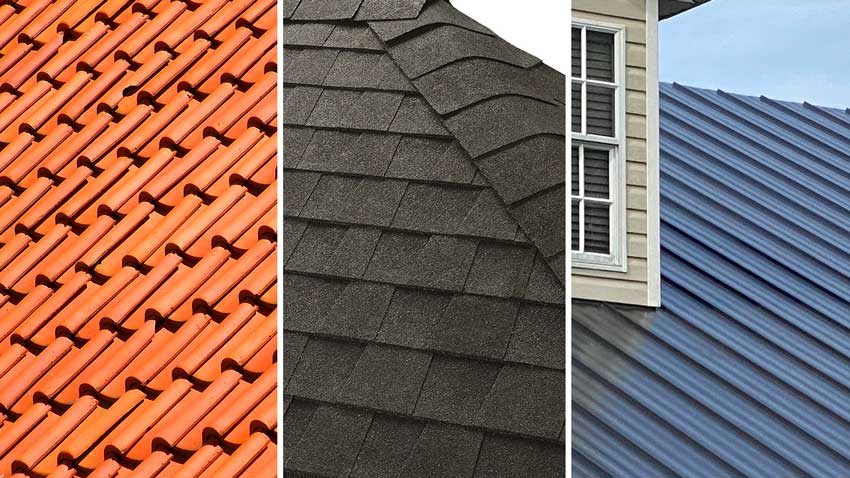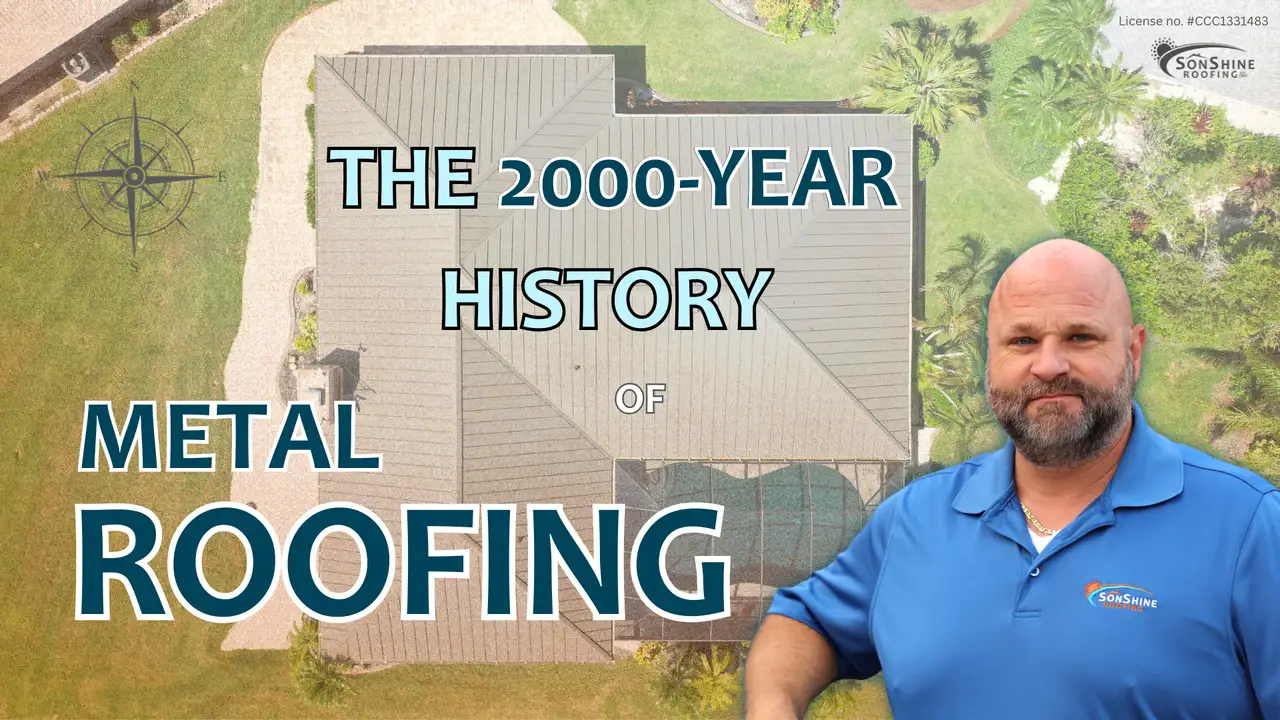Florida is known as the Sunshine state, but that doesn’t mean it has nice weather all the time. In fact, if you live in Florida, you have to be prepared for hot temperatures, humidity, rain, big storms, and even hurricanes.
And your home’s first line of defense is the roof.
You shouldn’t install anything on your roof unless you know it can withstand these types of weather conditions. That’s why we’ve put together this guide to help you narrow down the choices and find the best type of roof for Sarasota, Florida homes.
Let’s get started!
1. Asphalt Shingles
This is the most common roofing material out there. More homes have asphalt shingles than any other type of roof.
Why?
Asphalt shingles can withstand a wide variety of weather conditions. They’re a good choice for cold winters or (in Florida’s case) hot summers. They’re also the cheapest roofing material you can find, which makes them a good choice if your bank account doesn’t have a lot of wiggle room.
But like every good thing, this material also has its downsides. Here’s a closer look.
Pros:
- Fire-resistant
- Water-resistant
- Durable (they’ll last about 25 years)
- Don’t require much maintenance
Cons:
- Lightweight (they might blow right off your roof during a storm or hurricane)
- May warp or crack during the extreme summer heat
If you plan to install these shingles, you may need to set aside extra money in the budget for repairs. Strong winds can pull the shingles off your roof, and if you don’t replace them right away, you’re putting your home at risk of developing a leak or other damages. The good news is you won’t have trouble finding replacement shingles.
2. Clay Tiles
The color and style of clay tiles make a beautiful addition to any home. The summer heat, no matter how high the temperature gets, isn’t a problem for clay. No matter where you live in Florida, this roofing material will keep your home protected from the elements.
Take a look at a few of the other benefits of clay tiles.
Pros:
- Fire-resistant
- Rot-resistant
- Can withstand salt spray (good for beachfront homes)
- Durable and long-lasting (up to 50 years)
Cons:
- Pricey
- Fragile (they can crack or shatter during handling or if you put too much weight on them)
- Heavy
Because of the extra weight, you may need to spend extra time and money reinforcing your roof before the installation. But don’t let the higher price scare you off. While clay tiles are more of an investment, you won’t have to worry about going through another roof replacement in your lifetime.
You can also feel secure knowing these tiles will stay in place during even the strongest winds, so you won’t find your home “balding” after a storm.
3. Concrete Tiles
Concrete is a popular choice for Florida’s climate, and it’s lighter than you think.
You won’t have to do much to your home before installation, which will make the replacement quicker, easier, and cheaper. While not the most conventional choice, concrete has a lot of other perks, including the following.
Pros:
- Low maintenance
- Durable (you can get 50 to 100 years out of this material)
- Fire-resistant
- Water-resistant
- Can withstand powerful winds
- Lots of color options
Cons:
- Limited design options
- Somewhat expensive
While concrete tiles aren’t the most expensive type of roofing material you can buy, it will cost more money than options like asphalt or some types of wood. However, it is still an affordable choice for homeowners who want something durable but still affordable.
Don’t like the appearance of concrete?
Don’t give up on it too fast. You can find concrete tiles or shingles that look like wood or other materials. Many concrete roofs have a beautiful and modern appearance on their own, so if you don’t mind how it looks, concrete is a smart choice for homes in the Sarasota area.
4. Metal Roofing System
Metal roofs aren’t made of one giant, flat, industrial-looking plate. Instead, you can install a metal roof that looks like asphalt shingles, clay tiles, wood shake, etc.
This material is a good choice if you like the appearance of a different type or roof but want a few extra features, such as the ones below.
Pros:
- Little to no maintenance
- Fire, water, and insect-resistance
- Can withstand salt spray from the ocean
- Durable (they can last up to 40 years)
- Reflect heat (which helps your home stay cooler and reduces your energy bill)
Cons:
- Expensive
- Limited design options
Metal is one of the most expensive roofing materials available (though it’s not the worst!), and although you may be able to find a design or style you love, it will come at a higher-than-average price. If you have a tight budget, you may want to stick with one of the cheaper options on this list.
5. Slate
You have a lot of customization when it comes to slate roofs. You can find this material in all different colors, designs, and appearances, which can help you find the perfect fit for your home.
It’s also incredibly durable. Not only can it hold up during hurricanes, but it will provide you with many other advantages.
Pros:
- Water and rot-resistant
- Fire-resistant
- Long-lasting (can protect your home for over 100 years)
- Natural beauty
Cons:
- Fragile
- Heavy
- Very expensive
Slate is much, much heavier than clay tiles. You won’t be able to start installation until you reinforce the bones of your roof. Remember, that’s an extra cost, and slate itself is the most expensive roofing option on this list.
That said, this roofing material is also beautiful and can withstand any weather conditions Florida throws its way.
Choosing the Best Type of Roof for Your Sarasota, Florida Home
Before you settle on the best type of roof for your home, spend some time doing your research. Figure out what type of weather conditions you get in your area then pick a roof that’ll match up with those conditions.
Need some help?
Don’t hesitate to get in touch with our team at SonShine Roofing. We can walk you through the entire roof replacement process, from the material choice to the installation.













